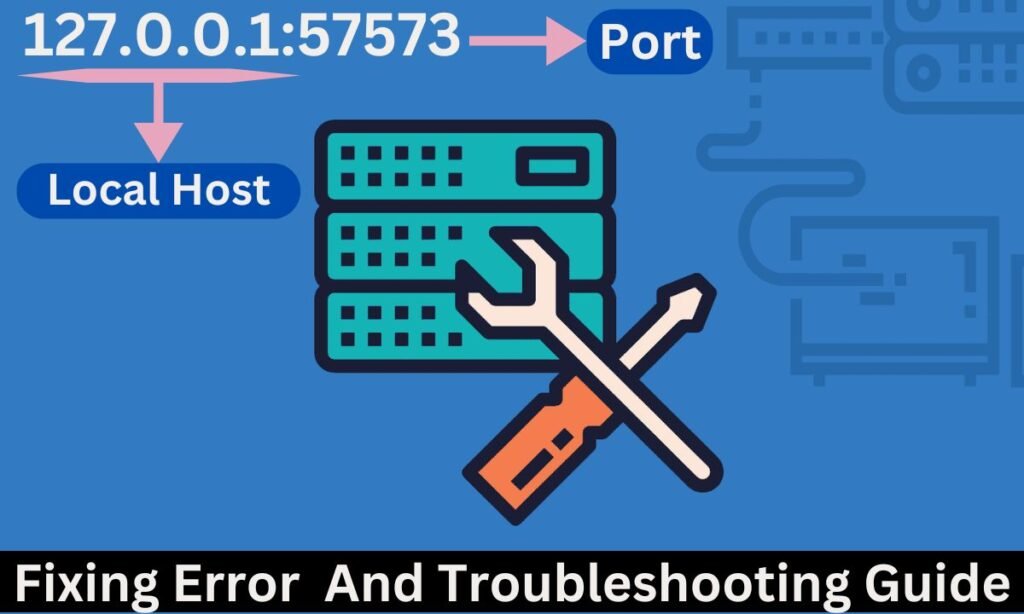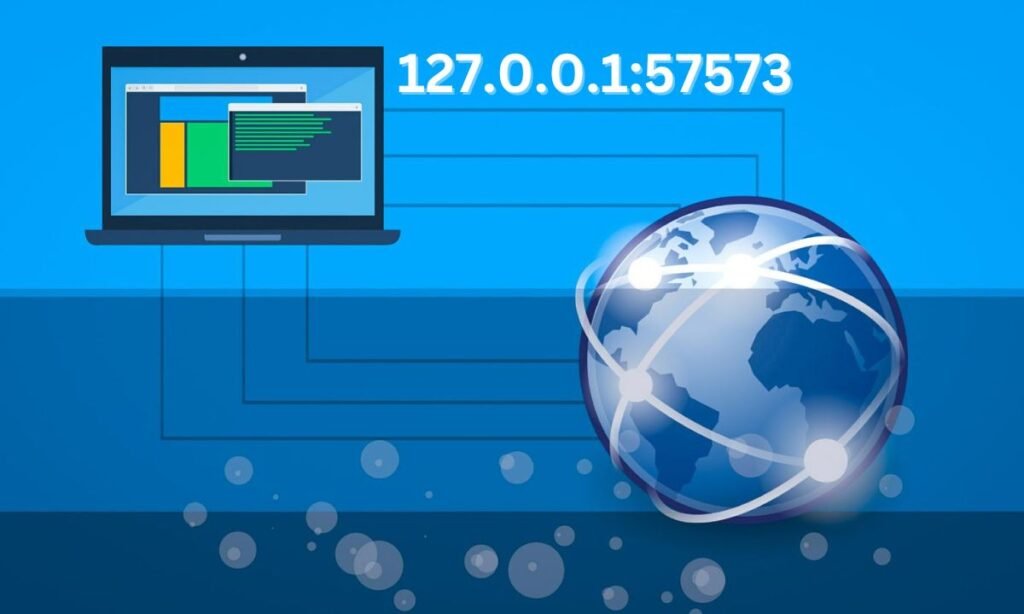
Encountering the 127.0.0.1:57573 error can be a frustrating experience, particularly when it disrupts your workflow. This error commonly occurs within a local server environment, often tied to development tasks. Understanding and resolving this issue efficiently requires a systematic approach. In this comprehensive troubleshooting guide, we will explore the root causes of the 127.0.0.1:57573 error and provide actionable solutions to resolve it.
Understanding the 127.0.0.1:57573 Error
The IP address 127.0.0.1 is known as the loopback address, which refers to the local machine in networking terms. The number 57573 represents a specific port that your application or service is trying to use. This error typically arises when there is a conflict or misconfiguration involving this port. The symptoms may vary, but often include server crashes, failed application launches, or the inability to access services that rely on the local server.
Common Causes of the 127.0.0.1:57573 Error
- Port Conflict: One of the most common reasons for this error is that the port 57573 is already in use by another application. When multiple services attempt to use the same port, conflicts occur, leading to connectivity issues.
- Firewall Restrictions: Firewalls are designed to protect your system by controlling incoming and outgoing network traffic. However, they can also block legitimate connections, causing the 127.0.0.1:57573 error.
- Misconfigured Local Server: If your local server is not configured correctly, it might attempt to use a port that is unavailable or restricted, resulting in this error.
- Corrupt Application Files: Sometimes, the root cause may be corrupted files within the application or service trying to use port 57573. This corruption can lead to unexpected behavior, including connection errors.
- Outdated Software: Running outdated versions of server software or other related applications can also lead to this issue. Compatibility problems between different software versions may cause the error.
Troubleshooting the 127.0.0.1:57573 Error

1. Checking for Port Conflicts
The first step in resolving the 127.0.0.1:57573 error is to check whether another application is using the same port. You can do this by following these steps:
- Windows:
- Open the Command Prompt with administrator privileges.
- Type the following command:
netstat -aon | findstr 57573 - This will display a list of processes using port 57573. Note the PID (Process ID) of the process.
- Open Task Manager and navigate to the “Details” tab.
- Find the process with the corresponding PID and terminate it if it is not essential.
- macOS/Linux:
- Open the Terminal.
- Type the following command:
lsof -i :57573 - Identify the process using the port and terminate it using the
killcommand if necessary.
If terminating the process is not an option, you may need to configure your application to use a different port.
2. Configuring Firewall Settings
Firewalls can inadvertently block the port 57573, leading to connection issues. To ensure that your firewall is not causing the problem, follow these steps:
- Windows Firewall:
- Open the Control Panel and navigate to “System and Security” > “Windows Defender Firewall.”
- Click on “Advanced settings” and navigate to “Inbound Rules.”
- Look for any rules blocking port 57573 and disable them.
- Create a new rule to allow traffic through port 57573 if necessary.
- macOS Firewall:
- Go to “System Preferences” > “Security & Privacy” > “Firewall.”
- Click on “Firewall Options” and ensure that your application is allowed to accept incoming connections on port 57573.
- If needed, add a new rule to allow traffic through this port.
- Linux Firewall:
- Use the following command to check if the firewall is blocking the port:
sudo ufw status - If the port is blocked, allow it using the command:
sudo ufw allow 57573/tcp - Reload the firewall to apply changes:
sudo ufw reload
- Use the following command to check if the firewall is blocking the port:
3. Reconfiguring Your Local Server
Misconfigurations in your local server settings can lead to the 127.0.0.1:57573 error. To address this, you may need to review and update your server configuration files.
- Apache:
- Open the Apache configuration file (usually
httpd.conforapache2.conf). - Search for any references to port 57573 and ensure that no other services are trying to use the same port.
- If necessary, change the port number and restart the Apache server using the command:
sudo systemctl restart apache2
- Open the Apache configuration file (usually
- NGINX:
- Open the NGINX configuration file (usually
nginx.conf). - Look for the
listendirective that specifies port 57573. - Change the port if needed and restart NGINX using the command:
sudo systemctl restart nginx
- Open the NGINX configuration file (usually
- Node.js:
- In your application’s configuration file, search for the port number.
- If the port is causing conflicts, modify it to a different number.
- Restart your Node.js server using the command:
node yourapp.js
4. Repairing Corrupted Application Files
Corrupted files can disrupt the normal operation of your application, leading to the 127.0.0.1:57573 error. To repair these files:
- Reinstall the Application: The simplest method to repair corrupted files is to reinstall the affected application. This will replace any missing or damaged files.
- Use Integrity Check Tools: Some applications come with built-in tools to verify and repair corrupted files. For instance, Node.js applications often use
npmfor this purpose. Runnpm installto check and repair dependencies. - Manual Repair: If you know which files are corrupted, you can manually replace them with fresh copies from a backup or official source.
5. Updating Software
Outdated software can cause various issues, including the 127.0.0.1:57573 error. Ensuring that all your software is up-to-date is crucial.
- Update Your Operating System: Ensure that your OS is running the latest version, as updates often include bug fixes and performance improvements.
- Update Local Server Software: If you are using Apache, NGINX, or Node.js, make sure to update them to the latest stable versions. This can often resolve compatibility issues.
- Update Dependencies: For applications with multiple dependencies, such as those built with Node.js or Python, ensure that all libraries and modules are up-to-date. Use package managers like
npm,pip, orbrewto manage these updates.
Conclusion
Resolving the 127.0.0.1:57573 error requires a systematic approach to identify and eliminate the root cause. By checking for port conflicts, adjusting firewall settings, reconfiguring your local server, repairing corrupted files, and keeping your software up-to-date, you can effectively troubleshoot and resolve this issue. Implementing these strategies will help ensure that your local server environment runs smoothly, minimizing downtime and improving productivity.
Also Read More:
Explore 127.0.0.1:62893: The Error, Meaning And Fixing Tips
Share To Help
